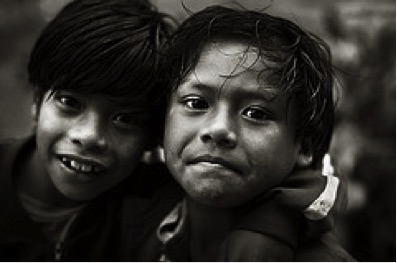For years, there has existed a lucrative market found in illustrating women as objects in film, TV, Internet, magazines and the news. The exploitation of women’s bodies has contributed to the sale of billions of dollars worth of fashion and cosmetics products worldwide. But what if these industries did more than sell the message that what is most important is how a woman looks? What if these industries could contribute to the global empowerment of women – both within and outside the home? With the growing recognition in the international community that empowering and investing in women not only alleviates poverty, but also makes good business sense, various fashion brands are making a strong social impact on the lives of women.
Next to agriculture, the textile and garment industry is the second largest employer in the developing world, and a large percentage of the employed are women due to the ‘gendered-nature’ of the work. Launched in 2011, Fashion ComPassion, whose mission is to create positive change through fashion by bringing ethical independent brands to a global audience, brings fashion lovers, conscientious consumers and women artisans together to create a uniquely curated online boutique of ethical and sustainable fashion bags and accessories. Inspired by her two biggest interests: fashion and social enterprise, Ayesha Mustafa (former marketing executive for Pepsi Co UK) and founder of Fashion ComPassion, is committed to the idea that fashion can be a powerful tool for positive change.

How does it work? When you visit Fashion ComPassion’s website and decide to purchase one of their products, your purchase contributes to positive social impact in three ways:
- Partnering with the United Nations World Food Programme to feed a schoolgirl with every purchase you make on the website
- Supporting an eco-system of trade that empowers women, local enterprise and sustainable business models which focus on helping entrepreneurs reach a global market
- Supporting a transparent and eco-friendly supply chain through Sustainability Stamps
One of the first brands Fashion ComPassion partnered with was Palestyle, a Dubai-based brand providing jobs and an income to Palestinian refugee women in camps in Lebanon and Jordan. With a vision of becoming a leading accessory brand in the Middle East, Fashion ComPassion worked as its retailer, agent and distributor, helping to build its market in Pakistan and securing its stock in the British Museum. Palestyle started with a small team of 20 women who used their skills and craftsmanship to add traditional embroidery and designs to fashion pieces, and today works with 100 women, investing in community projects such as the Water Tank Exchange Program, which has provided clean water to over 4,000 refugees.
An international manufacturer and direct selling company better known for its billionaire dollar sales in beauty, personal care and fashion merchandise, Avon has proved a viable mechanism for poverty reduction and women’s economic empowerment in South Africa. Similar to the interests that sparked Fashion ComPassion, Avon seeks to bolster incomes and increase the capacity of the poor to exert control over their own lives through the creation of entrepreneurial opportunities for women through direct sales in the fashion industry. The problems that women often face in participation may be coined as four C’s – Culture, Childcare, Cash and Confidence. Avon believes that the gender disparity can be overcome to a great extent through economic empowerment.
A successful American business model built on independent sales representatives, the structure of the Avon system is especially conducive to the participation of economically disadvantaged women who tend to predominate in small enterprises, have less wealth/goods that can be used as collateral, and are more likely to benefit from the flexibility and proximity to home that micro-enterprises afford. Avon extends a small amount of credit at the outset, and most women begin by filling small orders: a tube of moisturizer, a can of body spray, or a roll-on deodorant, for example, and convert the profits from these small sales into subsequently larger orders. Thus, as long as cash for the orders comes in a timely fashion, the representative can build her business. Thus, the Avon experience subverts an industry that is often considered a cause and sign of women’s oppression and objectification and instead uses such a business model to allow women to craft a new identity as professionals, refashioning their appearance and redefining economic activity as enterprising and entrepreneurial.
Ventures such as these inspire me for three reasons. First, it is a remarkable example of how fashion and beauty can be used to empower rather than degrade women. Secondly, it demonstrates the social impact that activism and consumer culture can have in the development sphere. Lastly and perhaps most importantly, it is a reminder of the significance of women’s economic empowerment. The entrance of social activism and development into women’s consumer culture may just be the beginnings of a new fashion future.




